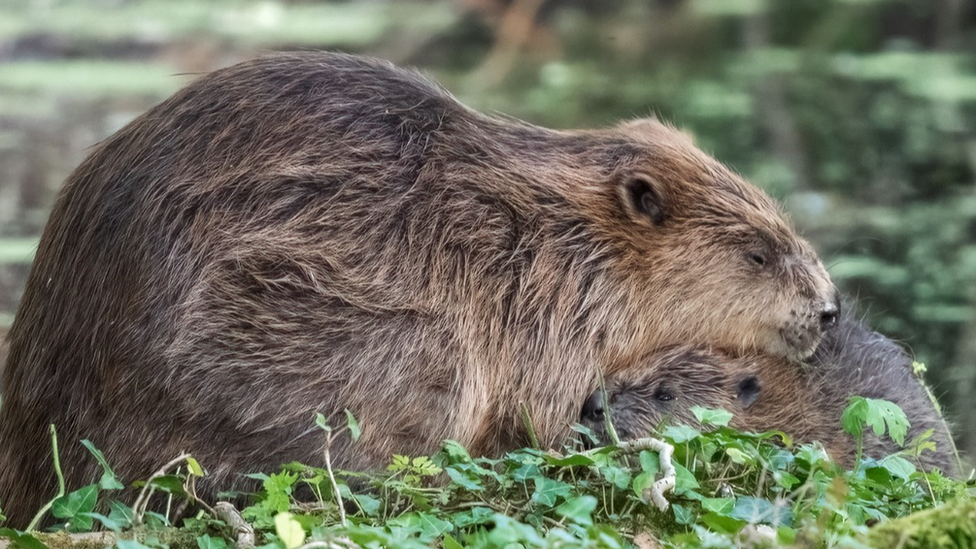Baby beaver born in London for first time in 400 years
- Published
- comments
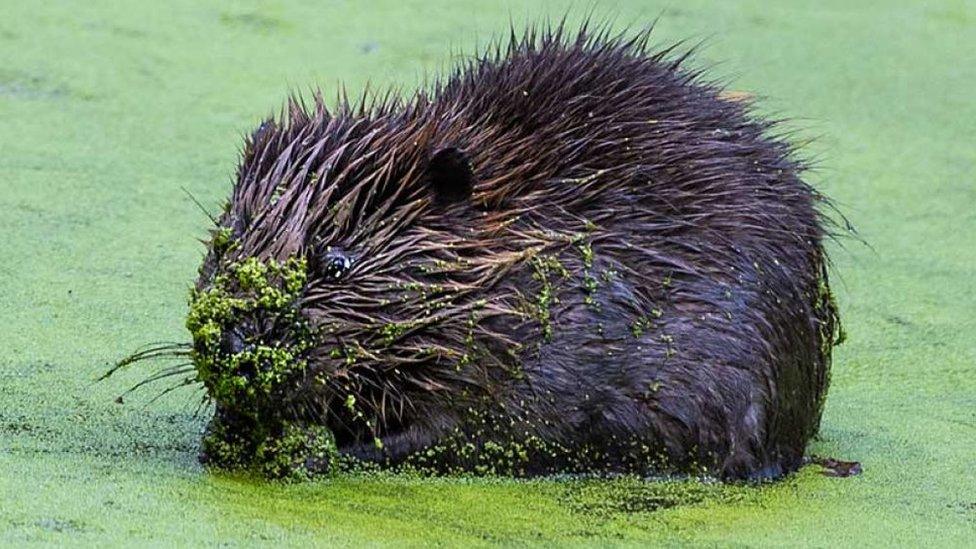
The baby beaver was caught on camera over the summer
Chances are if you have seen a baby beaver before it wasn't in London, as they haven't stepped paw there in hundreds of years... until recently that is.
One is thought to have been born in the capital for the first time in 400 years.
The mammals became near-extinct in Britain because people used to hunt them for their fur, glands and meat.
Reintroduction programmes are underway across the country, and one started in London in 2022.
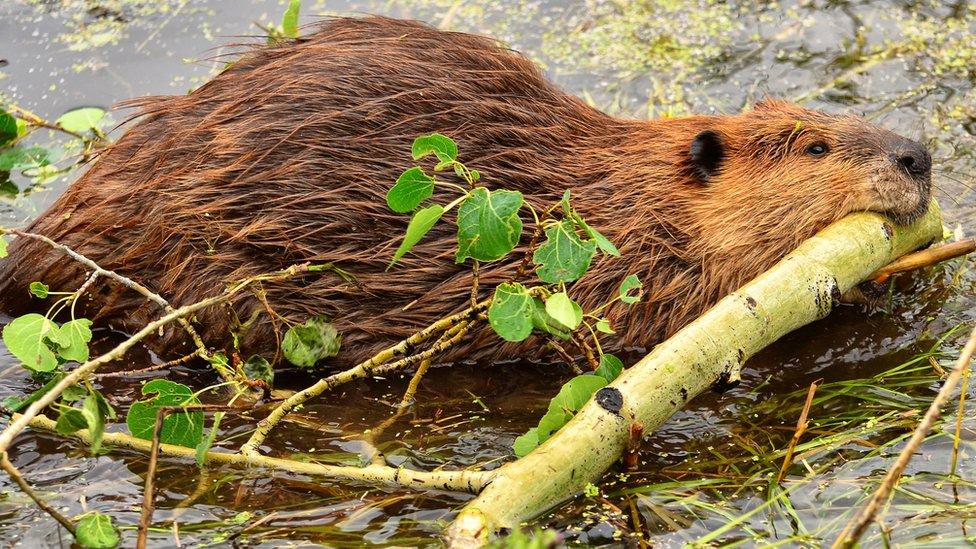
Beavers are known for their roles as engineers
Capel Manor College plan to check the young beaver that was spotted in London to make sure it is healthy.
It will also be able confirm whether the rodent is male or female.
Meg Wilson, who is the college's animal collections manger, said they are thrilled to hear about the new arrival.
She hopes new data will "provide further evidence about the positive effects the beavers are having on the environment".
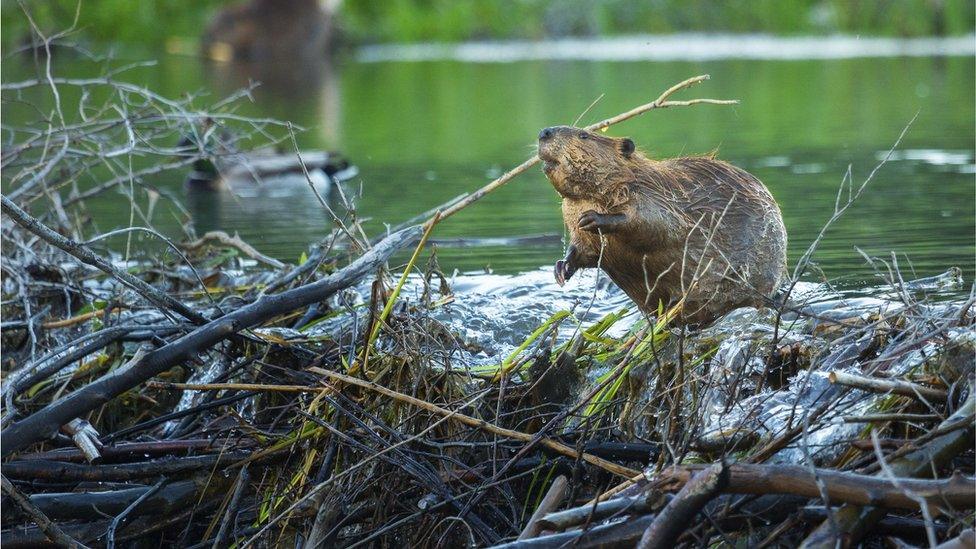
Beavers build dams which are made up of wood from trees
The reintroduction programme is part of a wider rewilding and natural flood management project taking place across the UK.
Beavers are known for their natural engineering skills, that can help other animals, plants and humans too.
They take wood and build dams which can hold up a lot of water - this can protect downriver land from flooding and reduces silt, improving the quality of water that does go through the dams.
Another benefit to the beavers' dams is the large wetlands that are created as a result, and this environment is very beneficial to the wildlife and plants that live there.
A dam is something which slows down or blocks a river or stream
Dams can be used to help with farming by saving water, and can create electricity by forcing water through turbines at high speeds
Dams can also help prevent flooding by creating pools higher upstream
Beaver dams filter water to make it cleaner downstream
- Published1 October 2021
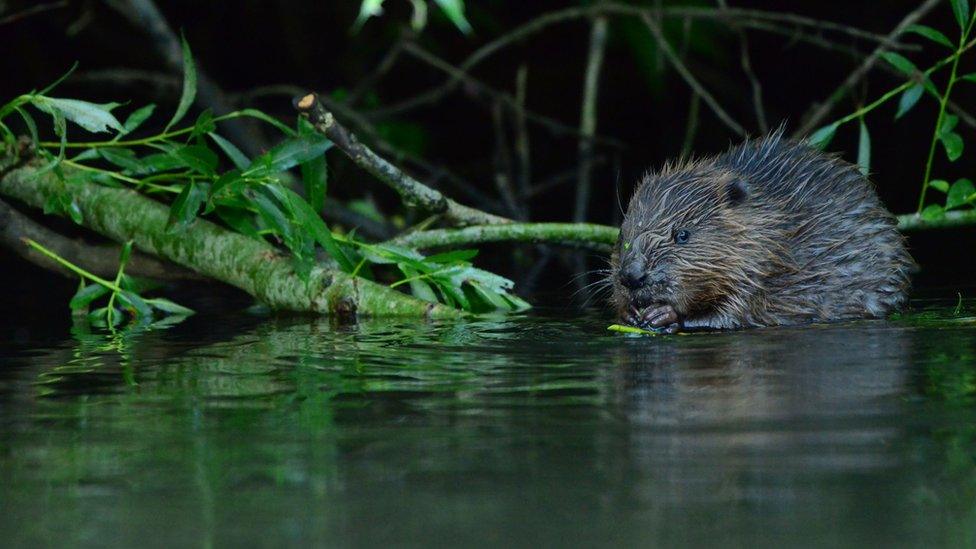
- Published24 February 2023
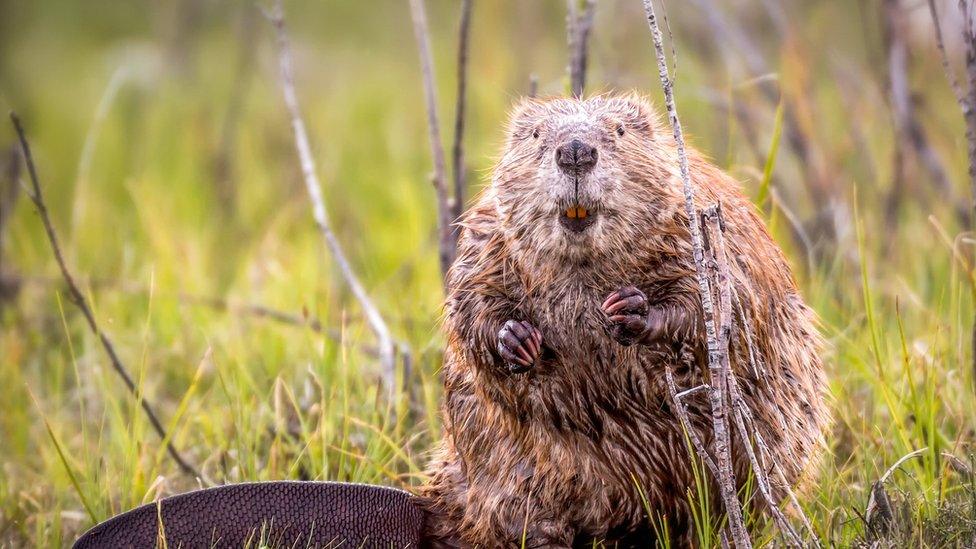
- Published5 August 2023
